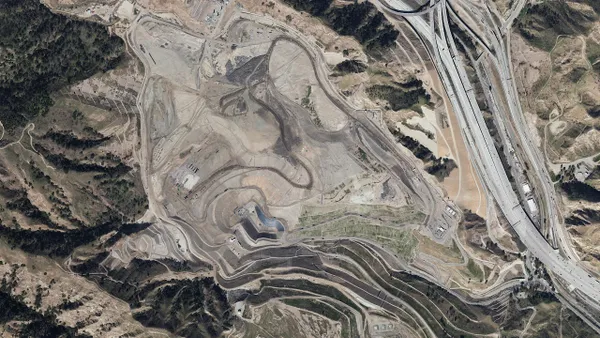Dive Brief:
- Great River Energy (GRE) plans to close the Elk River Resource Recovery Project in Minnesota, as reported by MPR News, due to financial challenges caused in part by declining energy revenues. This includes a 1,000 ton-per-day refuse-derived fuel operation, a 29 MW power plant and an ash landfill.
- The utility had approached multiple counties, including Hennepin and Anoka, about potentially purchasing the site. Sherburne County, the final option, decided against it during a Nov. 20 meeting. Even with GRE offering the facility for $1 and promising to cover any potential closure costs through 2020, the lack of necessary tonnage was a primary deal breaker.
- With the region's other WTE facilities largely operating at capacity, an estimated 250,000 tons per year of waste is now expected to end up in one of four area landfills. The Star-Tribune previously reported this may shorten their average remaining permitted lifespan to six years.
Dive Insight:
The Elk River site has been processing waste into RDF since a 1989 retrofit and GRE took over the full operation in 2010. GRE, a cooperative, recognized this presented an "extremely unusual decision" for the county and appears to have made the deal as favorable as possible. In addition to the $1 sale price – along with the assumption of $5.4 million worth of closure expenses and $4 million in employee severance through the end of 2020 – it also offered a two-year power purchase agreement weighted in the county's favor.
Yet the facility needs 320,000 tons per year to remain financially viable and has seen its incoming stream steadily decrease since at least 2013. According to documents provided to the Sherburne County Board of Commissioners, only 140,000 tons were guaranteed by GRE during its proposed two-year bridge period. In a memo evaluating the proposal, the county's solid waste administrator wrote that “unless additional guaranteed tonnage are secured in writing, this project will lose money," and "result in fiscal loss to the county."
That same memo also recognized “the overall benefits of processing solid waste rather than relying on indiscriminate land disposal is undisputed,” in keeping with the Minnesota Pollution Control Agency's (MPCA) waste recovery hierarchy. According to the Energy Recovery Council, the state has seven other active WTE facilities. GRE won an operating contract for one of those sites, owned by Hennepin County, over incumbent Covanta in 2016.
Following the EPA's own national hierarchy, MPCA recently went so far as to start enforcing a decades-old law requiring waste go to WTE facilities with slack capacity, such as GRE's Elk River site, rather than to area landfills. Waste Management (which owns three of the four local landfills) and Republic Services (which owns the fourth) sued, and the matter is pending appeal. Meanwhile, Waste Management plans to begin exporting tonnage from one local site in Burnsville out of state in advance of shrinking capacity.
While Minnesota handles a larger portion of its waste via WTE than landfills, this is not the national norm. Outside of select regions, WTE is still the minority option, and new or expanded projects remain challenging for a host of political reasons. GRE's Elk River facility will now join a list of at least three others — in California, New Jersey and Florida — that have announced closure plans in 2018.
Correction: A previous version of this article stated that Waste Management was currently exporting waste to Iowa. That process has not begun yet and could include a variety of potential destinations.













